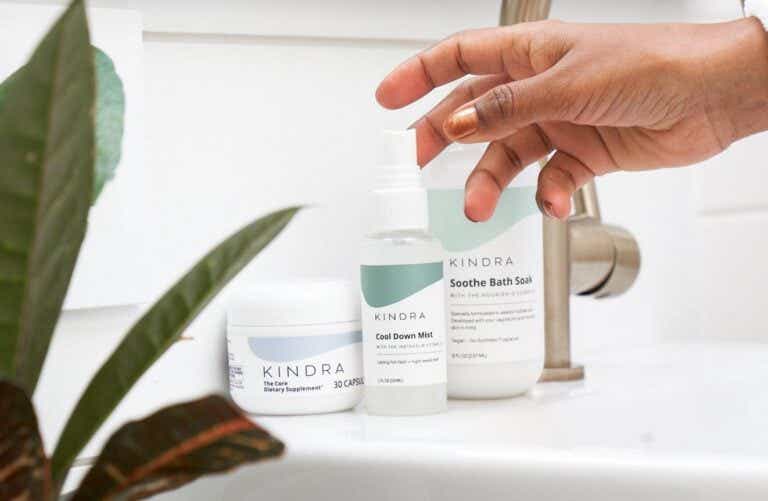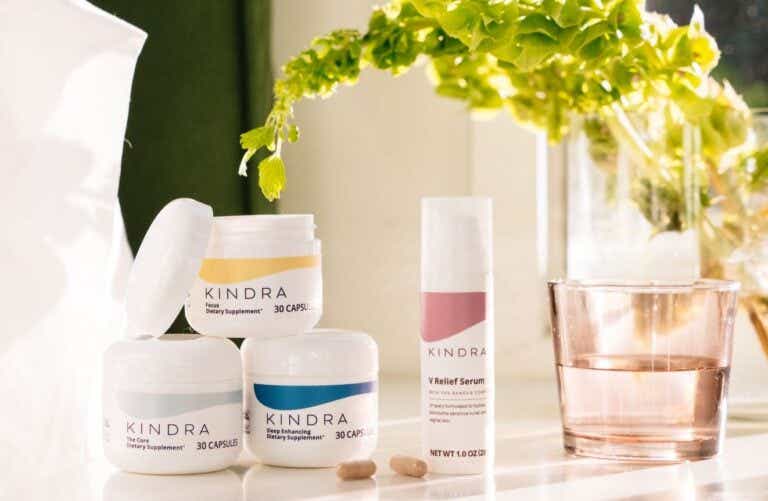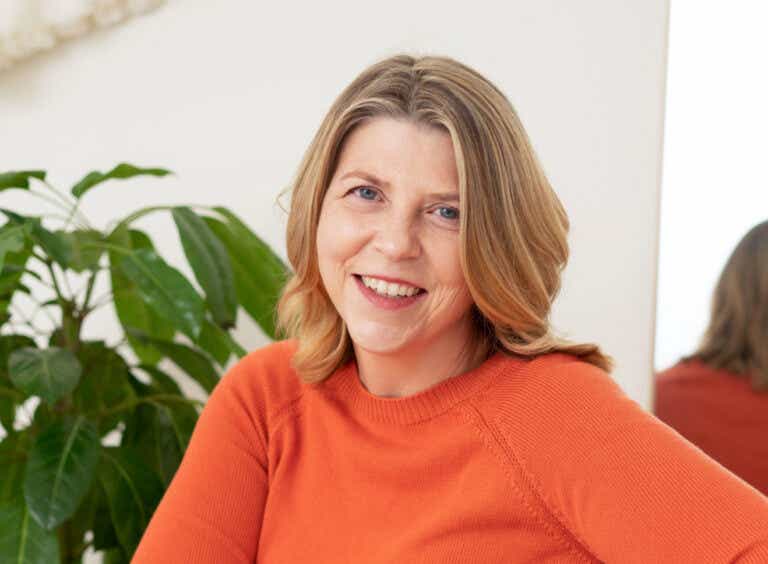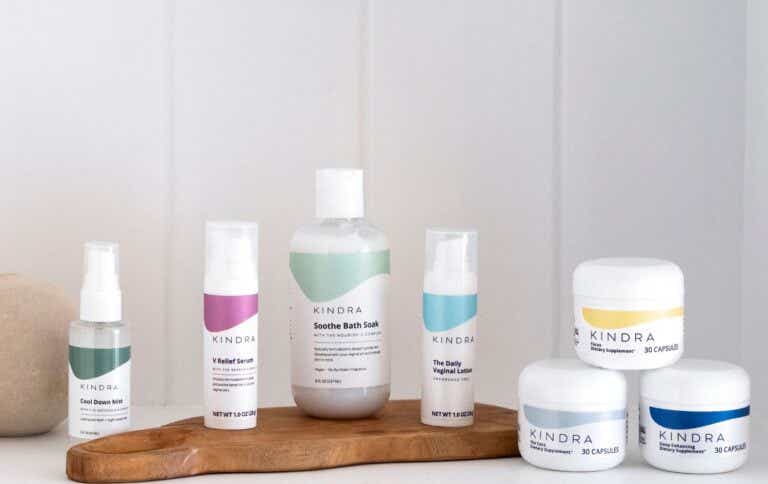About Kindra
Considering half the population will go through (or has already been through) menopause, we don’t talk about it nearly enough — but Kindra’s ready to start the conversation. Whether you or someone you love is tired, hot-and-flashy, or suffering through any other effects of menopause, Kindra has estrogen-free products to help. These clean, plant-powered staples have been clinically and gynecologically tested, so you can cut straight to relief without worrying about the fine print. And just because menopause is an individualized experience doesn’t mean you have to go through it alone: Kindra created an online community as a place to discuss the good, the bad, and the sweaty.

Why we love them
Whether you just started menopause, are in the midst of it, or have been postmenopausal for years, we can’t recommend Kindra’s estrogen-free peri/menopause essentials enough. The brand’s site is divided by concern, so you can easily find a science-backed solution to your discomfort. Their bestselling Daily Vaginal Lotion is intended for everyday use to treat dryness and prevent painful sex. And if you need more energy during the day or more sleep at night, Kindra’s power-boosting and sleep-enhancing supplements can do the trick.

Meet Catherine Balsam-Schwaber
Catherine Balsam-Schwaber became the CEO of Kindra in March of 2020, when the company was still in its infancy. After a career of working at various media companies that happened to fit her life stage, it was as if this job found her: Catherine had recently started navigating menopause herself and was aiming to move into something meaningful to her. In the 18 months since, Catherine has led the charge in bringing the conversation about menopause into the open, and encouraging women to see menopause as a new and exciting phase of life.

In Conversation with Catherine
How did you end up at Kindra?
I’ve been fortunate to work in places where my job and my passions aligned at the exact right time: I worked at MTV in my twenties, and in my late thirties I ran marketing at NBCUniversal’s iVillage, the original women's community platform. I got pregnant and had my twins when I was there, and then became the Chief Content Officer at Mattel when my kids were the perfect age for Barbie and Hot Wheels. I came back to NBCUniversal and helped get an art and education streaming business up and running there. After that, I was about to turn 50 and I wanted to work on something that was really important to me personally.
Access to healthcare has always been a passion of mine. And then I met the team that leads the LA-based fund M13, who were talking to Procter and Gamble about developing a small line of menopause products. The three of us joined forces to start what is now Kindra. As a first-time founder, having a brand that was safe and effective, and scientifically developed over five years, really helped me and the business get this incredible running start.
Why do you think we need to bring more attention to menopause, as a culture?
I began to get unexplainable aches and pains while at NBC, but I was only 48 and it never occurred to me that it was menopause. My doctor said I had fibromyalgia and told me to take really powerful steroids and come back in six months. Luckily I didn’t think that was right, and when I talked to my OB, she told me it was menopause. I was stunned because in my mind, menopause was something that happened to a much older woman.
I wanted to be able to deliver great educational resources, community, and solutions for women who very often don’t understand what's happening to their bodies. When they find us, there’s this big sense of relief: Here are people who understand what I'm going through. They can give me science-driven, physician-backed information and connect me to other women who are having the same kind of experience. And they can also give me solutions that’ll make me feel like myself again.
A lot of doctors aren’t fully educated about menopause. Does changing that start with women or with doctors?
There are larger issues in the medical system than menopause, but the idea that it wouldn't even occur to my doctor to bring it up, based on my age alone, is shocking to me. I think in terms of making change, it's a combination of factors. We’re kicking off a program called Couch Conversations, where we encourage the women in our community to gather together and talk about what's happening in their menopausal journeys. So many of the conversations that do happen, happen behind closed doors, and it creates this shroud of silence around menopause that doesn't help you or any other women. The confusion and worry over lack of resources is part of what makes menopause so anxiety-provoking. A lot of women think, “Well, I guess my messed-up sleep, brain fog, and vaginal dryness is just the new normal,” but it doesn't have to be. Once women are comfortable having these conversations among themselves, they’ll be empowered to communicate their symptoms and needs to their doctors.








